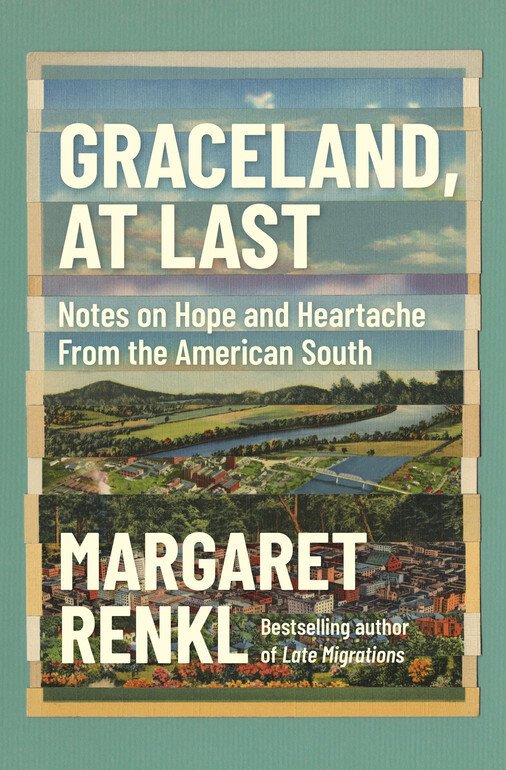Graceland, At Last
Margaret Renkl
Reviewed by Shalini Rana
Graceland, At Last, Margaret Renkl’s collection of essays from The New York Times, unfolds like a “patchwork quilt” of voices, stories, and perspectives from the American South, underscoring how the South is neither one entity nor one voice. Like a quilt, which brings “the past into both the present and the future,” these essays explore far-ranging themes, from flora & fauna to politics & religion, to better understand the strained times we’re living in, and how we must “make [ourselves] look” in a country that is as complicated and troubled as it is beautiful.
We bear witness to the realities of religion, politics, and capitalism—and the real ways they fail us. Stories of animals and plants native to Tennessee, where Renkl lives, remind us of our responsibility to the natural world and the payoff of paying attention to the life we share this planet with. While these essays were written during the Trump presidency, and some during the beginning of the COVID-19 pandemic, Renkl illustrates more what has been gained rather than lost in our communities—much through the work and advocacy of people of color living in the South. Her essays on family and growing up in Alabama bring us back to our own heirloom stories, recipes, and holiday traditions, and what it means to feel the guiding hand of previous generations. The real treats of this collection are her essays celebrating the legacies of two influential Johns in American history: the late John Lewis and John Prine. While the book is not a how-to, we come away with how to better “belong to one another” in a time when we desperately need to.

